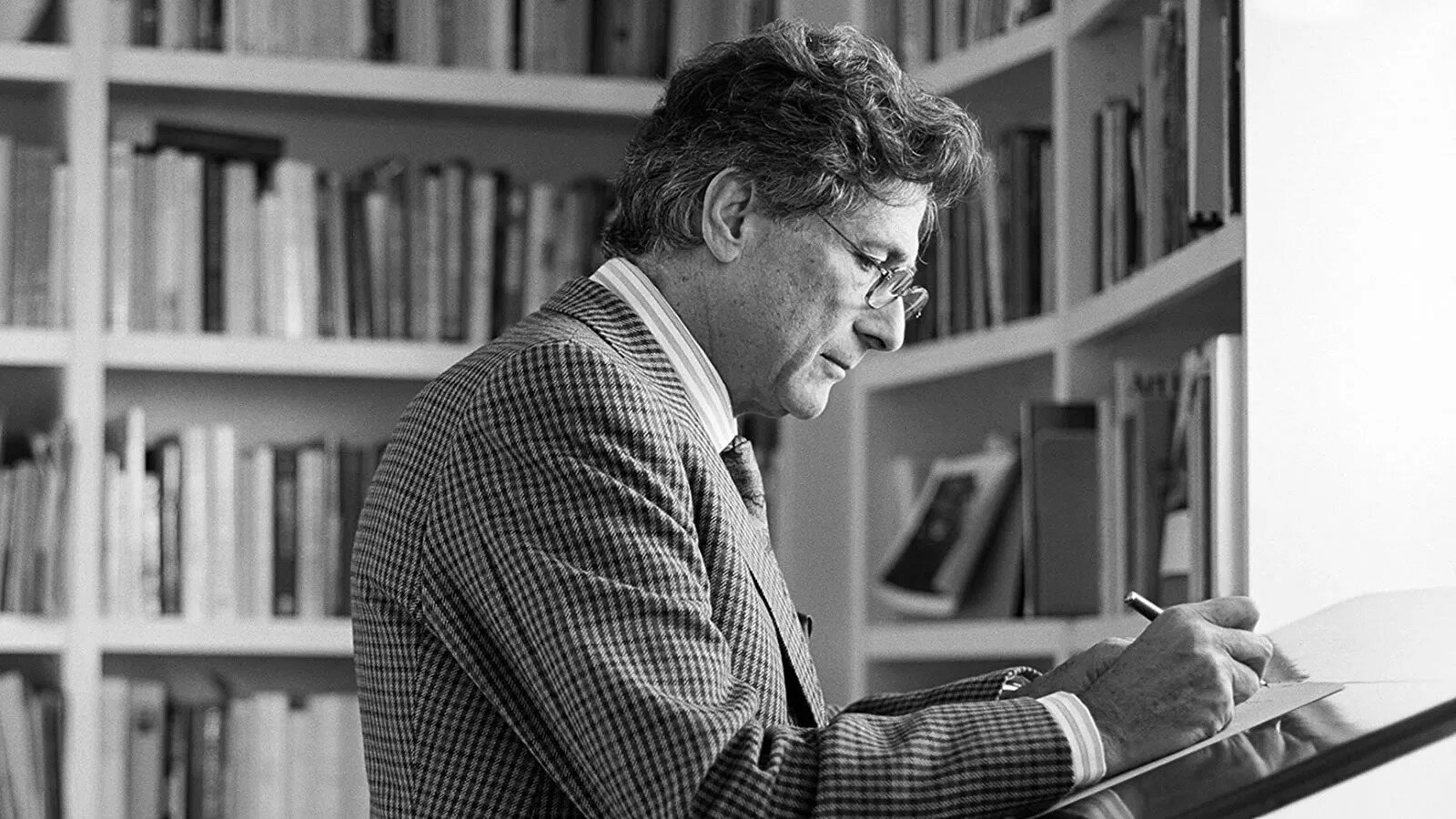
Edward Said was a prominent intellectual figure whose influence extended far beyond his field of expertise. Born in Palestine in 1935, Said went on to become a renowned scholar, literary critic, and political activist. While many are familiar with his groundbreaking work on Orientalism, there are numerous lesser-known facts about Said that shed light on his remarkable life and career. In this article, we will explore 15 surprising facts about Edward Said, revealing the multifaceted nature of his contributions to academia and his tireless advocacy for social justice. From his passion for music to his activism for Palestinian rights, these facts showcase the depth of Said’s accomplishments and offer a fresh perspective on his enduring legacy.
Key Takeaways:
- Edward Said, a brilliant scholar and musician, challenged Western stereotypes of the Middle East and advocated for justice, leaving a lasting impact on postcolonial studies and cultural theory.
- His memoir “Out of Place” and groundbreaking work “Orientalism” shed light on his complex identity and enduring commitment to the Palestinian cause, inspiring others to challenge dominant narratives and fight for equality.
Edward Said was born in Jerusalem.
Edward Wadie Said was born on November 1, 1935, in Jerusalem, then under British mandate. This fact is crucial to understanding his deep connection to the Palestinian cause and his commitment to challenging Western narratives of the Middle East.
Said was fluent in several languages.
One of the remarkable aspects of Edward Said’s intellectual prowess was his ability to engage with texts and conversations in multiple languages. He was fluent in English, Arabic, French, and German, which allowed him to explore a wide range of literary and cultural traditions.
He wrote the groundbreaking book “Orientalism.”
Said’s most influential work, “Orientalism,” published in 1978, critically examined Western representations of the East. It challenged the prevailing stereotypes and exposed the power dynamics inherent in the Western understanding of the “Orient.”
Said was a Professor of English and Comparative Literature.
Edward Said held prestigious teaching positions at Columbia University and the University of California, Berkeley, where he shaped the minds of countless students with his incisive analysis and passionate advocacy for justice.
He was also a talented musician.
Aside from his academic pursuits, Said was an accomplished pianist. He found solace and inspiration in music, and his love for classical composers like Beethoven and Wagner resonated throughout his life and work.
Said co-founded the Palestinian National Initiative.
In 2002, Edward Said played a key role in establishing the Palestinian National Initiative, a grassroots movement committed to finding a peaceful and just solution to the Israeli-Palestinian conflict. This fact highlights his enduring commitment to the Palestinian cause beyond academia.
His memoir, “Out of Place,” delves into his complex identity.
“Out of Place,” published in 1999, is Said’s memoir that delves into his experiences of displacement, growing up Palestinian in exile. It provides an intimate glimpse into his personal struggles and the formation of his intellectual and political perspectives.
Said was a vocal critic of US foreign policy.
Throughout his career, Edward Said was an outspoken critic of US interventions, particularly in the Middle East. He argued that American foreign policy perpetuated harmful stereotypes and disregarded the complexities of regional dynamics.
He emphasized the importance of humanism.
Said believed in the power of humanism as a tool for bridging cultural divides and fostering understanding. He argued that embracing empathy, compassion, and knowledge is essential to challenging oppression and promoting justice.
Said was a fierce advocate for academic freedom.
As a scholar, Edward Said consistently defended the importance of academic freedom. He believed that intellectual spaces should be liberated from political influence and censorship, allowing for open and critical dialogue.
He received numerous awards for his work.
Edward Said’s intellectual contributions did not go unnoticed. He received prestigious accolades such as the Lionel Trilling Book Award, the Lannan Literary Award for Lifetime Achievement, and the Prince of Asturias Award for Concord.
Said was a public intellectual.
Edward Said actively engaged in public discourse, offering insightful commentaries on issues ranging from cultural imperialism to the Israeli-Palestinian conflict. His fearless advocacy and eloquent articulation left an indelible mark on global intellectual discussions.
He challenged Western hegemony in academia.
Said’s work aimed to disrupt dominant Western narratives and challenge the hegemonic structures within academia. By questioning established knowledge and power systems, he paved the way for a more diverse and inclusive intellectual landscape.
Said’s impact extended beyond academia.
Edward Said’s ideas spilled over into various fields, inspiring writers, artists, and activists to critically examine the impact of imperialism, colonialism, and Orientalism on modern society. His legacy continues to resonate in contemporary debates.
His work remains influential today.
Decades after his passing, Edward Said’s scholarship and activism continue to shape the fields of postcolonial studies, cultural criticism, and literary theory. His ideas remain relevant as society grapples with issues of identity, power, and representation.
Conclusion
In conclusion, Edward Said was a remarkable individual who made significant contributions in the field of postcolonial studies, literature, and cultural criticism. Through his groundbreaking work, he challenged conventional narratives and shed light on the ongoing struggles of marginalized communities. His ideas and writings continue to inspire and shape the academic discourse, urging us to critically examine power dynamics, stereotypes, and the representation of the “Other.” Edward Said leaves behind a lasting legacy, reminding us of the importance of empathy, understanding, and the pursuit of social justice.
FAQs
1. Who is Edward Said?
Edward Said was a Palestinian-American scholar, literary critic, and public intellectual. He was born in Jerusalem in 1935 and later migrated to the United States. Said is best known for his influential book “Orientalism” and his work in postcolonial studies.
2. What are some of his notable works?
Some of Edward Said’s notable works include “Orientalism,” “Culture and Imperialism,” “Covering Islam,” “The Question of Palestine,” and “Out of Place: A Memoir.”
3. What is the significance of “Orientalism”?
Orientalism” is one of Edward Said’s most renowned works. It critiques Western representations of the East, particularly in literature and academic scholarship, highlighting the inherent biases and stereotypes associated with such depictions.
4. How did Edward Said contribute to postcolonial studies?
Edward Said played a pivotal role in the development of postcolonial studies by introducing new perspectives and challenging Eurocentric narratives. He brought forth the concept of “Othering” and emphasized the importance of understanding power dynamics, the effects of colonization, and the representation of subaltern groups.
5. What is Edward Said’s impact on academia?
Edward Said’s ideas continue to shape and influence the academic landscape, particularly in the fields of literature, cultural studies, and postcolonial theory. His work has inspired countless scholars to critically examine dominant discourses and question established norms.
6. Has Edward Said received recognition for his contributions?
Yes, Edward Said received numerous accolades during his lifetime, including the Lionel Trilling Book Award, the Wellek Prize, and the Presidential Medal of Freedom. He also held prestigious academic positions, including a professorship at Columbia University.
Edward Said's life and work continue to inspire and provoke thought long after his passing. His groundbreaking ideas challenged Western perceptions of the Middle East and reshaped academic discourse. Delving deeper into Said's background, influences, and lesser-known aspects of his life promises to shed new light on this remarkable intellectual. For those eager to learn more, exploring additional astonishing facts about Edward Said offers a fascinating journey into the mind of a true luminary.
Was this page helpful?
Our commitment to delivering trustworthy and engaging content is at the heart of what we do. Each fact on our site is contributed by real users like you, bringing a wealth of diverse insights and information. To ensure the highest standards of accuracy and reliability, our dedicated editors meticulously review each submission. This process guarantees that the facts we share are not only fascinating but also credible. Trust in our commitment to quality and authenticity as you explore and learn with us.


